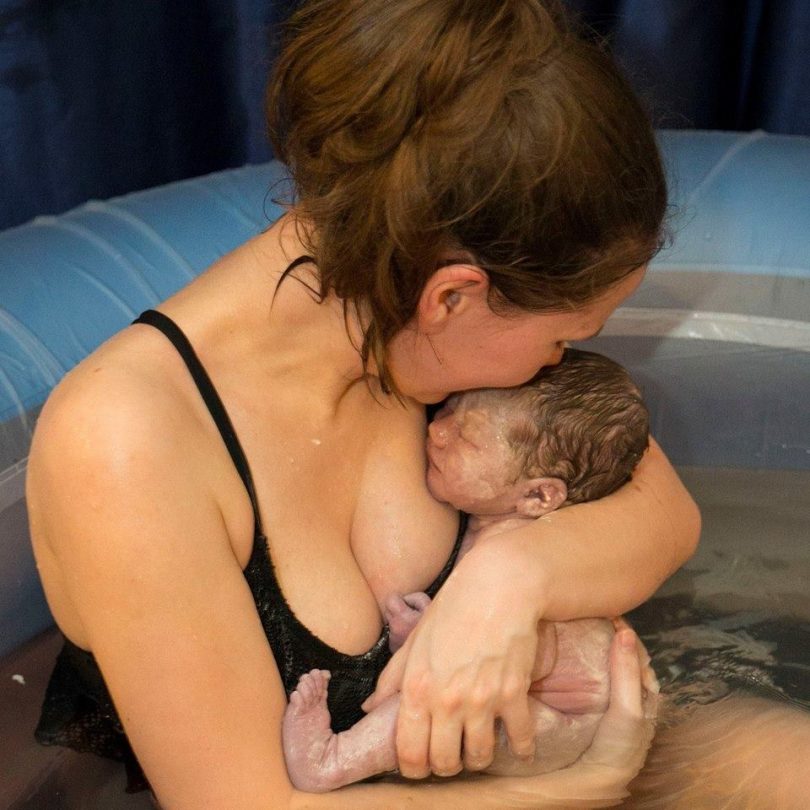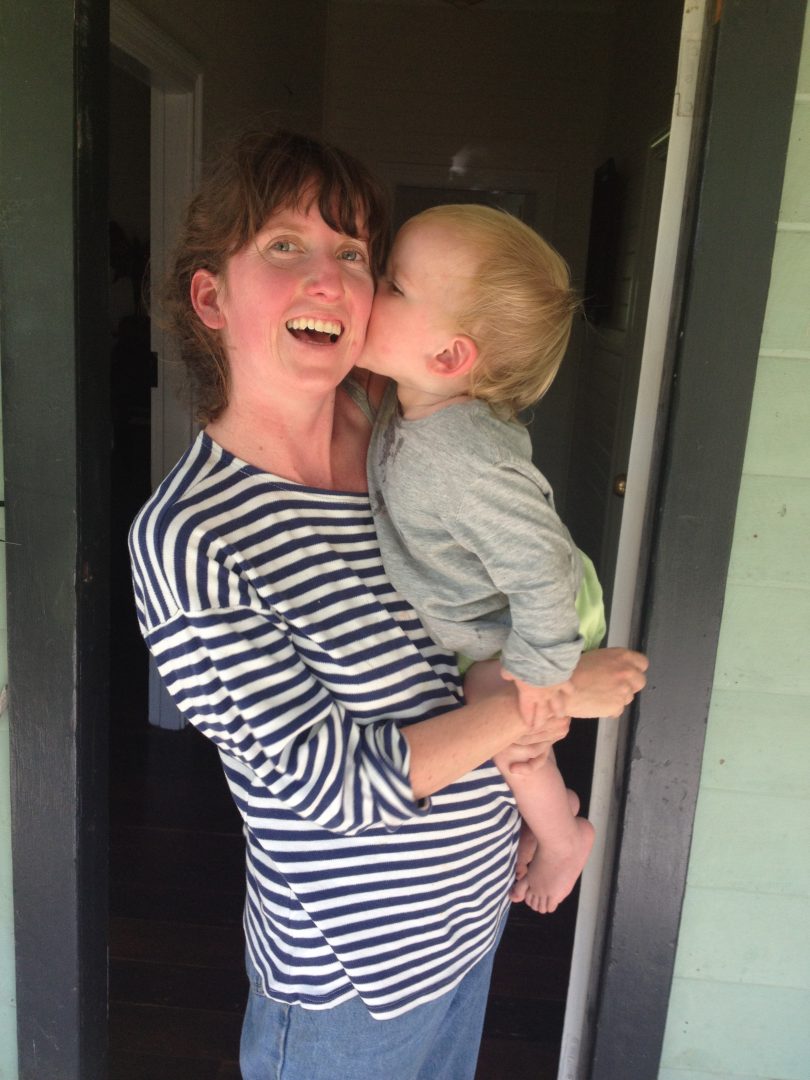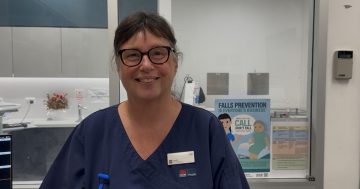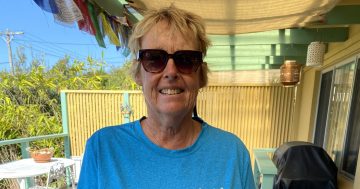
Maggie Thorssell, of Cobargo, with son Billy and Felicie Vahcon, of Yowrie with son Elias. Picture: Elka Wood
Felicie Vahcon is over halfway through her second pregnancy, she had a cesarean section for her last birth and is aiming for a vaginal birth this time around.
She also lives in a rural area and, like most women, wants to have control over who is caring for her throughout her pregnancy and birth.
“I just don’t understand it – we can choose our dentist and our general practitioner but with birth, we have no say, it’s whoever is on shift.”
Felicie values the continuity of care model so highly that she transferred from South East Regional Hospital (SERH) in Bega to Moruya Hospital at 29 weeks with her first baby and is travelling to Moruya during her current pregnancy – over an hour’s drive in each direction in order to see the same two midwives throughout her pregnancy and birth.
She’s not alone; 12 women travelled from non-local areas to birth at SERH in 2018 and 58 travelled to Moruya, according to figures provided by Southern NSW Health.
When asked directly about the discrepancy in the figures between the two hospitals, a spokesperson for Southern NSW Health says the reasons women travel to birth include being close to a specialist obstetrician and to be close to family for support.
SERH and Moruya maternity have similar models of midwifery care with access to an obstetrician, so why are more women choosing Moruya?
Southern NSW Health confirmed that Moruya does not have an official continuity of care model but the spokesperson says that the Moruya team do aim for women to see the same caregivers, if at all possible.
For Felicie and her friend, Maggie Thorssell, of Cobargo, who is also pregnant with her second child, seeing a team of practitioners in their previous pregnancies has meant constantly explaining their choices to different staff amid a feeling that they should “do as they’re told.”
“It would be nice,” Maggie muses “if there was more of a ‘choose’ mentality at hospitals instead of a ‘refuse’ mentality because there have been times I’ve felt that I couldn’t say no.”

As well as needing medical support, birth is a rite of passage which requires the right support, says Bega-based doula Ayla Kranz. Picture: The Positive Birth Movement Facebook page.
For Felicie and her partner, meeting a range of midwives and obstetricians and not knowing who would be in attendance at the birth of their first child was too much of a gamble.
“I thought – I don’t want to have my baby this way,” Felicie says.
Bega-based Ayla Kranz is a trainee midwife and has seen the benefits of what Felicie is seeking in her work as a doula. Traditionally, according to the Australian Doula College, a doula is a woman offering non-medical support and information to other women and their partners during birth and the postnatal period. ‘Doula‘ is a Greek word that came to mean ‘woman’s servant’.
“Studies have shown that everyone benefits from a continuity of care model,” Ayla explains “and this is especially true for high-risk women.”
Hiring a private midwife is the only way rural women can guarantee they will see the same caregiver throughout their pregnancy, birth and postnatal period but private midwives across Australia are in a bind. The law requires that they have indemnity insurance but there is no insurance product in Australia at the moment that covers the birth for a private midwife.
The latest in a series of extensions was applied in February this year, granting midwives the right to practise without insurance until 2021 – but the future of private midwifery in Australia remains uncertain, though homebirth programs through hospitals like this one in Canberra continue to be rolled out in capital cities.

Felicie Vahcon, 25 weeks pregnant and with her son Elias in Cobargo. Picture: Elka Wood.
Having a trusted care provider is advantageous to birth outcomes because birth is powered by the love hormone oxytocin.
“You can see how it changes a woman’s labour to have people she doesn’t know in the room,” Ayla says.
Maggie laboured through three shift changes while birthing her son at SERH last year and knows firsthand how much the support of staff makes a difference.
“I could feel my labour slowing down when I heard staff talking about how things could go wrong and how big my baby was,” Maggie says “and on the other hand, people saying positive things really helped me.”
Maggie’s baby was a big boy – 4.5 kg and she is proud to have birthed him.
The sense of empowerment that Maggie took away from her challenging birth is a crucial aspect of birthing, according to Ayla.
“Birth is a right of passage, women who are autonomous and well-supported during birth are set up for success in those first six weeks with a newborn, as well as for a lifetime of parenting.”
The options for birthing are widening, even in regional hospitals according to Southern NSW Health, “both SERH and Moruya offer midwifery care through community health services and both facilities have the option for women to use warm baths for pain relief in labour.”
But despite these changes and the best intentions of staff, pregnant women like Maggie and Felicie are choosing to travel away from their nearest hospital seeking the kind of care they want.
What has been your experience in giving birth in a country town?
Further resources:
Online feedback tool to the Southern NSW Health.
Ayla Kranz’s podcast Circle of Birth.











